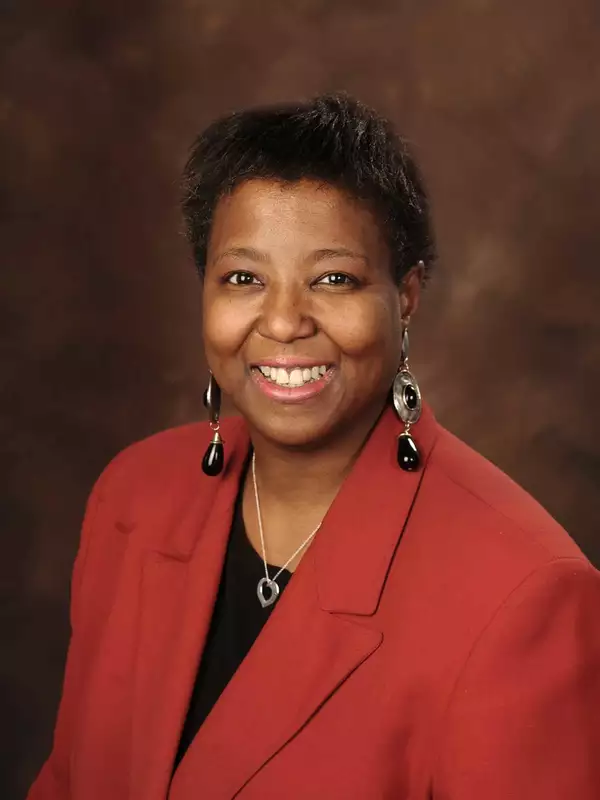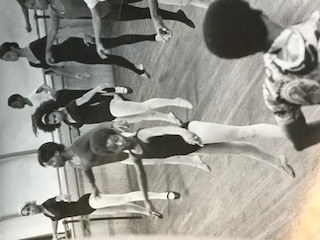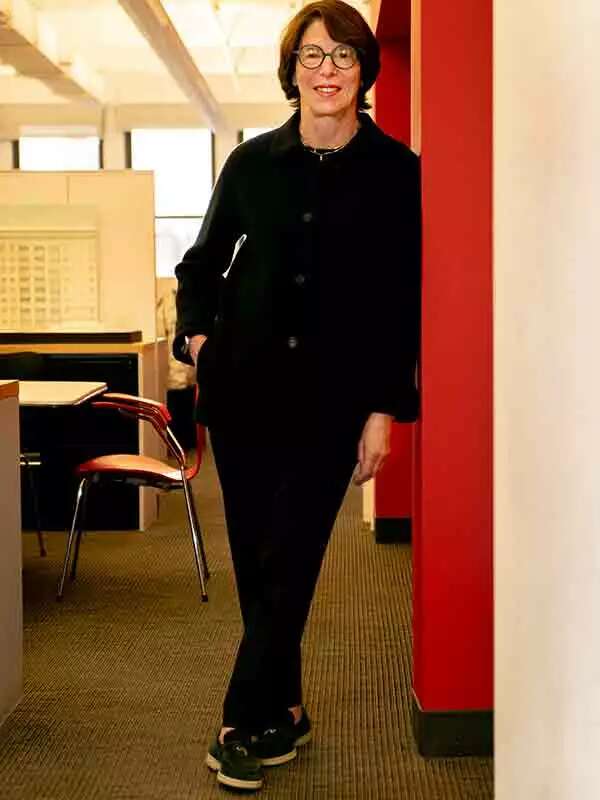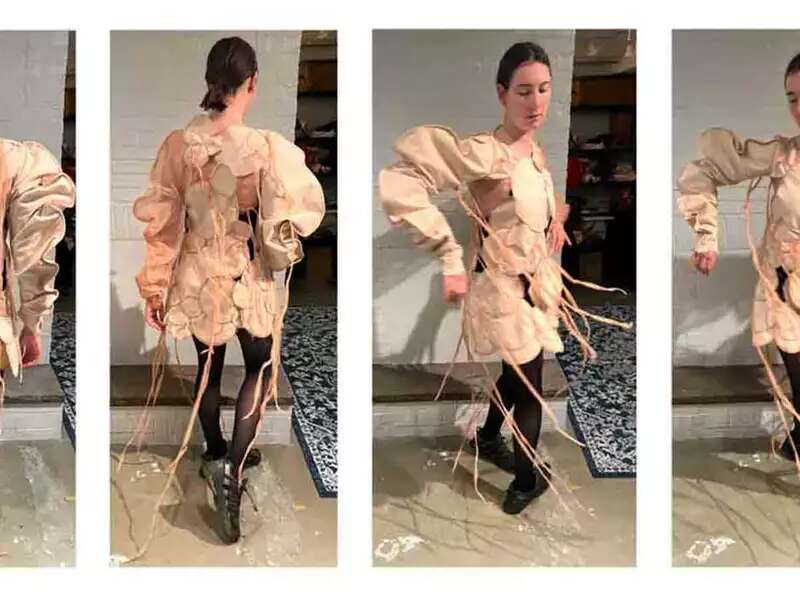

When Marcia Sells ’81, P’23 became the Metropolitan Opera’s first chief diversity officer in February, she found herself in a role that is not only a culmination of her professional experience but also a touching echo of an early chapter in her career — as a dancer. “It brings me back, literally, to the beginning,” says Sells, who had studied ballet and begun performing with Arthur Mitchell’s Dance Theater of Harlem prior to attending Barnard; she left the company after her sophomore year. “It’s full circle. I felt it was kismet.”
Sells says her new role “pulls together all I’ve done”; she came to the Met after nearly six years as the dean of students at Harvard Law School. “DEI is what I’ve done my whole life.”
At Harvard Law School, Sells launched the first diversity and equity training program for students and student services staff. And in her previous position, as an associate vice president of government and community affairs at Columbia University, Sells developed pathways for underrepresented groups to enter STEM programs at the University. Similarly, when she served in high-level positions at Reuters, Columbia University Law School, and the National Basketball Association, Sells consistently made diversity, equity, and inclusion a priority.
“[As an attorney], I was trying to recruit young lawyers [of color] to the D.A. office,” says Sells. While at Columbia and Harvard, she also worked on programs to recruit and support diverse students.
Sells found the Metropolitan Opera job posting on LinkedIn. “[My] time at Harvard was really great and proved I could live outside of New York City,” but, she admits, the temptation to return to the Big Apple was too strong to resist.
The position at the Met Opera takes Sells back to her artistic roots. As a young girl in Cincinnati, Sells recalls, her first performance was at age 9, in the opera Falstaff. “[My mother] loved opera and the symphony and put me in ballet. I was the only Black kid in ballet.”
Sells comes to the role at a critical moment for the legendary opera house, as it grapples with its own racial reckoning in the wake of the Black Lives Matter demonstrations and strives to become a more equitable institution. And no one is better equipped to guide the Met through these changes than Sells. “I thought, ‘Why not? If not me, who?’ As a person of color, I’m familiar with the argument of whether Black people and Latinx people can be part of European art forms. Classical ballet doesn’t belong to one group.”
An important element of Sells’ mission is to conceptualize and put into action a plan that creates a more diverse and inclusive organization, from the performers who appear on stage and the staff working behind the scenes to the members sitting on the board. She’s also tasked with another equally important goal: to broaden the Met’s audience.
“We want to see how to build the next generation of opera lovers,” she says. “Where’s the next generation of stewards and opera lovers coming from? Are you inclusive? Do you have a sense of belonging?” Sells says that for art forms like opera to survive, and even thrive, they must speak to diverse audiences: “It’s about different stories and different voices.”
Part of DEI work, Sells explains, asks the question “How do you hire and recruit?” The Met Opera has an extensive labor force on the production side, with stagehands and crew, as well as other organizational positions that offer career possibilities. “How do we introduce young people to these opportunities, which are a perfect opportunity for diverse hiring?” she asks. “It’s about seeing the arts as a way to make a living without a college degree. Creating those partnerships is exciting for me.”
She is quick to point out that the Met Opera was already committed to these important issues — from connecting to new audiences to expanding hiring practices — before she stepped into the role this past winter.
“This has been percolating here,” says Sells. For the opening night of the 2021-22 season, the opera house presented Fire Shut Up in My Bones — its first work by a Black composer, Terence Blanchard — based on the book by New York Times columnist Charles Blow. The focus, she says, has shifted to “How do we pull it all together in a cohesive plan?”
Perhaps it’s no surprise that Sells’ favorite opera is Dialogues of the Carmelites, composed by Francis Poulenc, which tells the story of Carmelite nuns executed during the French Revolution’s Reign of Terror. As Sells notes, “These nuns sacrifice themselves for a cause. It’s empowering.”
Barnard was key to Sells’ own sense of empowerment. “There were teachers [there] who challenged you,” recalls Sells. “If you had the capacity to tackle challenges, no one was saying, ‘You can’t do that.’ That’s a huge lift in taking a job like this. You can still fail, but you can figure out how to get up again.”
There were teachers [at Barnard] who challenged you. If you had the capacity to tackle challenges, no one was saying, ‘You can’t do that.’ That’s a huge lift in taking a job like this. You can still fail, but you can figure out how to get up again.
Sells’ dedication to community service — no surprise, given that her mother was a volunteer for many local organizations and her father ran the largest settlement house in Cincinnati — started during her undergraduate years; she was the student representative to the College’s Board of Trustees, president of the Student Government Association, and active in the Barnard Organization of Soul Sisters.
Her connections to Barnard have remained strong. Her daughter is a member of the Class of 2023. Sells is a Trustee and also serves on the boards of the Revson Foundation, Coalition for the Homeless, and Columbia University Community Impact.
As committed as Sells is to the work of diversity, equity, and inclusion, she hopes that there will be enough progress and change to make her role unnecessary someday.
“It would be lovely,” she says, “to work myself out of a job.”



